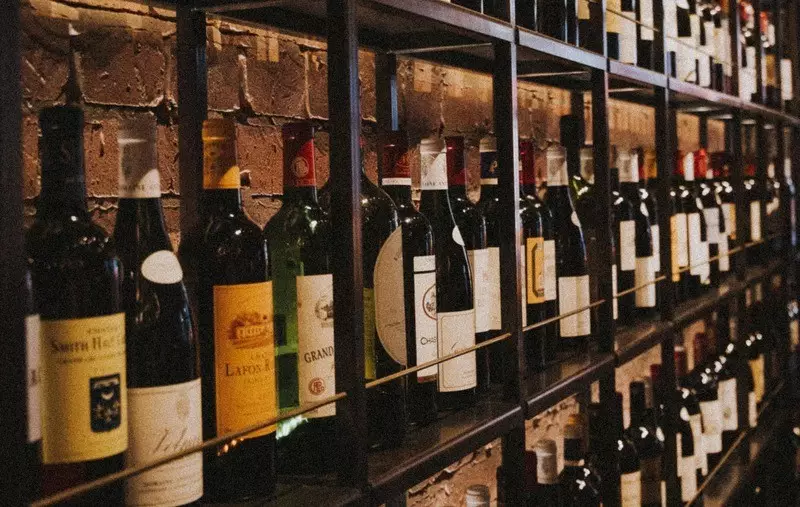Wine seems like a harmless drink, often because it has a lower concentration of alcohol than other more potent options and is widely accepted. Yet, there are limits to wine consumption. As it does have alcohol in it, it is critical to control how much is consumed to minimize the risk of health complications as well as impairment. So, is drinking a bottle of wine bad for you? Let’s take a closer look.
What Are the Health Benefits of Wine?
There are some sources that note there are health benefits of wine consumption. For example, red wine is noted for its high level of antioxidants, which are good for flushing toxins out of the body. It may help to lower cholesterol levels and support heart health. Some reports indicate that it can help control blood sugars and support the brain’s health and overall memory.
There is a significant amount of additional research necessary to support these claims. In short, most doctors do not recommend drinking wine, and if they do, it may just be one glass at the most per day.
What Are the Consumption Guidelines for Wine Drinking?
It’s a slippery slope when it comes to moderate wine consumption. Like every other type of alcohol, it will impact you differently than it will others. Some people are much more sensitive to wine than others. Some may find they don’t really feel anything when they have a glass. What’s a safe level to drink, then?
A standard alcoholic drink of wine is 5 fluid ounces. That’s for wine with about 12% alcohol concentration. There’s no safe level of consumption that applies to everyone, and any amount of alcohol can cause a person to struggle with cognitive impairment.
However, adults of the legal drinking age that wish to drink a glass of wine should still limit how much they take into less than two drinks per day for men and one drink or less per day for women. If you are drinking more than this, you could be facing numerous health concerns. When you ask, “Is drinking a bottle of wine bad,” the answer is always yes.
What Are the Negative Health Effects of Wine Consumption?
If there are so many potential good reasons to drink wine, you may think that drinking more of it may help you to see more of those positive results. However, that is not the case. Consuming more alcohol of any type than the recommended daily dose is worrisome because of the strain it puts on your body and the risks it creates for your overall health.
Some of the risk factors for excessive consumption of alcohol, including wine, include:
- A higher risk of developing liver disease, including cirrhosis and alcohol-related liver diseases
- Brain cognitive function decline can occur in many people, as the brain shrinks as a result of consuming too much alcohol.
- There’s an increased risk of developing heart disease in people who drink excessively because it can damage the heart muscle.
- Reckless behavior can also be a big factor. When a person becomes impaired from alcohol consumption, they are at a higher risk for engaging in reckless behaviors such as sexual violence, driving while intoxicated, and sharing drugs.
- Excessive alcohol consumption can also increase the risk of some types of cancer. That includes breast cancer in women, and mouth, liver, throat, and colon cancer in all people.
The other factor to keep in mind is the onset of addiction. Consistent drinking excessive alcohol amounts can lead to the development of tolerance, addiction, and dependence. You may have signs of these if you:
- Need to increase how much you are drinking to get the same results or feelings you desire
- Feel unable to control how much you are drinking at one time, often binge drinking until the whole bottle of wine is gone
- Thinking about having a drink constantly, especially in a positive way, such as feeling relief after a long day from a glass of wine
- Hiding your consumption, such as drinking alone or at work, because you don’t want others to know how much you are drinking
- Trying to stop drinking but having intense cravings and withdrawal symptoms when you do
If you are facing any of these symptoms, you may have an addiction that needs professional treatment. With that help, you are able to stop using alcohol as a way to deal with trauma, emotional concerns, stress, or other reasons. It also enables you to stop drinking even when you are dependent on the substance.
Getting Help Can Help You Break Through
If you are battling alcoholism or think you may be drinking too much but can’t stop, it’s time to seek out treatment. Here at 1st Step, we offer a wide range of programs to teach you about alcoholism and the consequences of it. You’ll also have access to treatments that can help you to stop using safely.
To learn more, reach out to our Admissions team today or give us a call at (866) 971-5531

